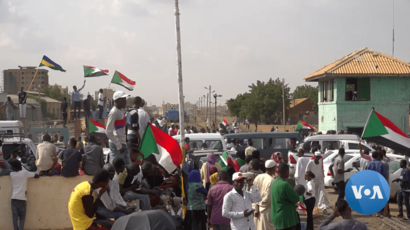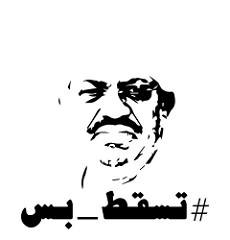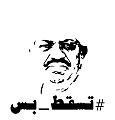Sudanese revolution facts for kids
The Sudanese Revolution was a big change in how Sudan was governed. It started with street protests across Sudan on December 19, 2018. These protests continued for about eight months with people peacefully refusing to follow certain rules.
During this time, the military took over the government in April 2019. They removed President Omar al-Bashir from power after he had ruled for thirty years. Later, a sad event called the Khartoum massacre happened on June 3, 2019, under the new military leaders.
In July and August 2019, the military leaders and a group of civilian protesters called the Forces of Freedom and Change (FFC) signed important agreements. These agreements planned for a 39-month period to set up a temporary government. The goal was to help Sudan become a civilian democracy.
In August and September 2019, the military officially handed over power. A mixed group of military and civilian leaders formed the Sovereignty Council of Sudan. A civilian prime minister, Abdalla Hamdok, and a mostly civilian government were also put in place. The power of the courts went to Nemat Abdullah Khair, who became Sudan's first female Chief Justice.
While the revolution mainly refers to these eight months, some people also include the time when Prime Minister Hamdok was in charge. He promised that the temporary government would work to achieve the goals of the revolution.
Quick facts for kids Sudanese Revolution |
|||
|---|---|---|---|
| Part of the Second Arab Spring | |||

Sudanese protestors celebrating the 17 August 2019 signing of the Draft Constitutional Declaration between military and civilian representatives
|
|||
| Date | 19 December 2018 – 10 October 2019 39-month revolutionary transition and sporadic protests continue
|
||
| Caused by |
|
||
| Goals |
|
||
| Methods |
|
||
| Resulted in |
|
||
| Parties to the civil conflict | |||
|
|||
| Lead figures | |||
|
|||
| Casualties | |||
| Death(s) | 246 | ||
| Arrested | 1,200+ | ||
Contents
How the Revolution Began
On December 19, 2018, protests started in many cities in Sudan. People were upset about rising prices and difficult economic times. The protests quickly changed from asking for better economic conditions to demanding that President Omar al-Bashir step down.
The government's harsh response to these peaceful protests worried people around the world. On February 22, 2019, al-Bashir declared a state of emergency. This meant the government had more power. He also closed down the national and regional governments.
On March 8, al-Bashir announced that all women jailed for protesting would be set free. Big protests happened again on April 6-7. On April 10, soldiers were seen protecting protesters from security forces. The next day, on April 11, the military removed al-Bashir from power in a military takeover.
Military Rule and Protests
After al-Bashir was removed, protests continued. Groups like the Sudanese Professionals Association asked the new military leaders, called the Transitional Military Council (TMC), to hand over power. They wanted a temporary government led by civilians.
Negotiations between the TMC and civilian groups began in April and May. However, these talks stopped after a terrible event on June 3. Military forces killed 128 people and injured many others in what is known as the Khartoum massacre.
In response, opposition groups held a three-day general strike from June 9-11. They called for continued peaceful refusal to follow rules until the TMC gave power to a civilian government. On June 12, the opposition agreed to stop the strike, and the TMC agreed to release political prisoners.
Moving Towards Civilian Rule
After more talks, the TMC and the civilian protesters (FFC) agreed on a plan called the Political Agreement. They announced it verbally on July 5, 2019, and signed it on July 17. The TMC and FFC agreed to share power to run Sudan. They planned to have elections in mid-2022.
This Political Agreement was followed by the Draft Constitutional Declaration. It was signed on August 4, 2019, and then more formally on August 17. This plan created the Sovereignty Council of Sudan as the head of state. It would have both civilian and military members. The leadership would switch from a military leader to a civilian leader after 21 months. The total temporary period would last 39 months, leading to elections.
The TMC was officially ended, and the new Sovereignty Council of Sudan was formed on August 20, 2019. Abdalla Hamdok became Prime Minister on August 21. A temporary government, with mostly civilian ministers, was announced in early September. A plan for peace talks with armed groups started on September 1, 2019. On October 10, Nemat Abdullah Khair was appointed as Sudan's first female Chief Justice. Protests continued during this time of change.
Why the Revolution Happened
Omar al-Bashir had ruled Sudan since 1989. He took power in a military takeover. He was later accused of serious wrongdoing in the Darfur region by an international court.
Since 1989, many people in Sudan strongly opposed al-Bashir's government. They were against his strict policies and human rights abuses. Many protests and strikes had been met with harsh responses. Important opposition leaders were even arrested or forced to leave the country.
In January 2018, large protests began in Khartoum, Sudan's capital. People were protesting against the rising prices of basic goods like bread. These protests quickly grew and gained support from different opposition groups. Young people and women's groups also joined in.
Sudan's economy had been struggling for a long time. It got even worse after South Sudan became a separate country in 2011. South Sudan had been a major source of oil money for Sudan. The value of Sudan's money dropped a lot in October 2018. This led to changing exchange rates and a shortage of cash. Long lines for petrol, bread, and money from ATMs became common. Sudan had very high inflation, meaning prices were rising very quickly.
In August 2018, al-Bashir's political party supported him running for president again in 2020. This happened even though he was becoming unpopular and had said he wouldn't run again. This led to more opposition, even from within his own party. Sudanese activists used social media to protest against his nomination.
Names for the Revolution
The protests and the planned 39-month period of temporary government were often called "the revolution" or the "Sudanese revolution." Sudan had two earlier peaceful uprisings that led to big government changes: the October 1964 Revolution and the March/April 1985 Revolution.
Since December 2018, protesters called their peaceful actions a "revolution." They chanted slogans like "Revolution is the people's choice." Women in the protests called it a "women's revolution." Even military leaders referred to "the uprising and the revolution."
Prime Minister Abdalla Hamdok said in August 2019 that the revolution's main slogan, "freedom, peace, and justice," would guide the temporary government's work.
Groups Leading the Opposition
At first, the groups opposing al-Bashir were not united. But in January 2019, they formed a coalition called the Forces of Freedom and Change (FFC). This alliance signed a charter asking for the government to be removed and for a move to democracy under civilian rule.
Many groups worked together. Local community groups, called resistance committees, had been organizing since 2013. They played a big part in organizing peaceful protests and putting pressure on the military leaders.
One important group was the Sudanese Professionals Association. This group is made up of different professional unions, like doctors, engineers, teachers, lawyers, and journalists. They started in 2012 and worked secretly under al-Bashir's rule to avoid arrest. Many of its members were urban middle-class professionals.
Other opposition groups included Sudan Call and the National Consensus Forces.
One expert described the political movement by Sudanese opposition groups as "perhaps the best organized and politically advanced" in the Middle East and North Africa.
Women's Important Role
The FFC alliance included two major women's groups: the Women of Sudanese Civic and Political Groups and the Sudanese Women's Union. Women played a very important role in the protests. Sometimes, they made up 70% of the people protesting in the streets every day.
In August 2019, during the time of change after the revolution, these groups argued for equal representation. They said that since women were as important as men in the revolution, they should have an equal share (50-50) of positions in the new government. They believed this should be based on their skills and abilities.
Art and Slogans of the Revolution
Artists in Sudan and around the world created poems, songs, speeches, paintings, and cartoons. These artworks helped to "inspire, enlighten, and share energy" during the revolution.
International news also highlighted how important women and female artists were as activists. Graphic artist Enas Satir said that art has a huge impact on people. She believed artists' role was to create art that could not be ignored.
Like other protests in the Middle East, Sudanese protesters chanted slogans. These included "Freedom, peace and justice," "We are all Darfur," and "Just fall – that's all."
"Just Fall – That's All"
The slogan "Just fall – that's all" (تسقط – بس tasquṭ bas) was first used on Twitter and Facebook during protests on December 22, 2018. It became very popular.
"Freedom, Peace and Justice"
This slogan was first used in downtown Khartoum. Protesters chanting "freedom, peace and justice" and "revolution is the people's choice" were met with tear gas. The people who organized this march were professionals like doctors, engineers, and teachers.
"We Are All Darfur"
The slogan "You arrogant racist, we are all Darfur!" was used in Khartoum. This was in response to 32 students from Darfur being targeted by security agents. The agents claimed the students were planning an attack. The students were arrested and later said they confessed "under pressure."
What Happened Next
On January 14, 2020, the Sudanese Armed Forces stopped a small uprising by soldiers loyal to the former President Omar al-Bashir in Khartoum. The former head of security, Salah Gosh, was accused of planning this uprising, which resulted in two deaths.
On March 9, a blast happened near the car of Prime Minister Abdalla Hamdok. He was not hurt in what was seen as an attempt to harm him. Mr. Hamdok said that this attempt would not stop Sudan's move towards democracy.
Sudan has made good progress in becoming more democratic since the revolution. For example, the government ended a law that allowed police to punish women for wearing pants. In July 2020, Sudan also made changes to its laws. It ended public whipping and lifted a ban on alcohol for non-Muslims.
Press freedom has also gotten better. Sudan moved up 16 places in the World Press Freedom Index. The government also worked to improve the situation for Christian minorities. People can now discuss things more freely, as the new government started to remove the strict surveillance from the al-Bashir era.
However, prices are still very high. Sudan also faces challenges like a lack of foreign money, a large public debt, and rising prices for goods.
On October 25, 2021, the Sudanese military, led by General Abdel Fattah al-Burhan, took control of the government in a military takeover once again.
Images for kids
See Also
- 2011–2013 Sudanese protests
- National Congress Party (Sudan)
- National Islamic Front
- 2019 Egyptian protests
- List of protests in the 21st century
- 2018 Sudanese protests
- War in Sudan (2023)
 | Georgia Louise Harris Brown |
 | Julian Abele |
 | Norma Merrick Sklarek |
 | William Sidney Pittman |




